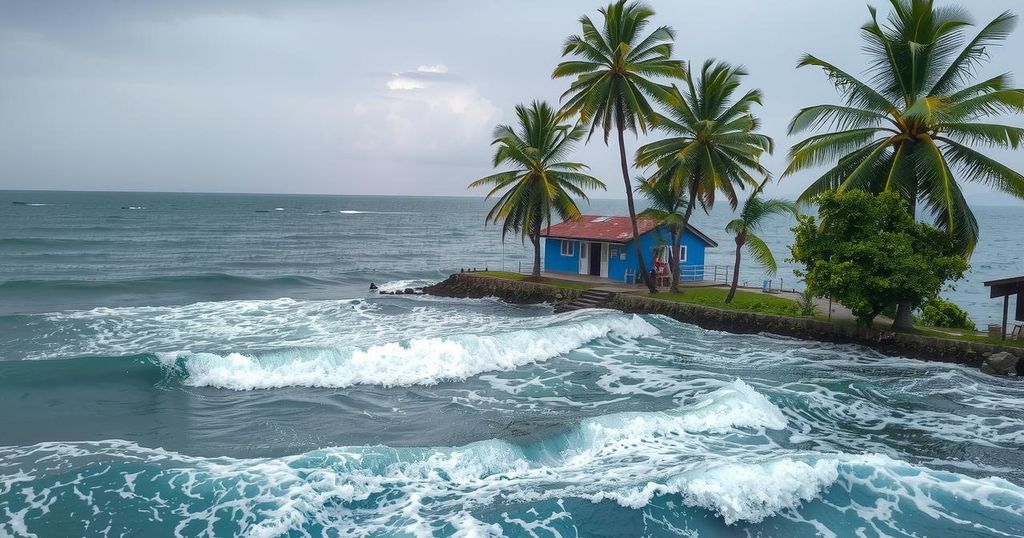Tropical Cyclone Chido: Initial Impact Assessment and Humanitarian Response in Mozambique
Tropical Cyclone Chido made landfall in Mozambique on December 15, 2024, resulting in devastating effects, particularly in Cabo Delgado Province. Key impacts include the destruction of over 23,000 homes, significant damage to health and educational facilities, and urgent humanitarian needs due to water and electricity supply crises. The local infrastructure has been severely compromised, complicating relief efforts.
Tropical Cyclone Chido made landfall in the Mecufi district of Cabo Delgado Province, Mozambique, on December 15, 2024, delivering severe winds and heavy rainfall that reached up to 250mm within a 24-hour period. The cyclone’s destructive path has resulted in significant damage across multiple provinces, particularly affecting Cabo Delgado, Nampula, and Niassa. Preliminary assessments indicate widespread infrastructure failure, including the destruction of approximately 23,598 homes and damage to numerous schools and health facilities. By December 16, Chido had moved towards Malawi, expected to weaken in Zimbabwe, yet the immediate impact on local communities remains dire. Emergency services face serious challenges, including damaged communication lines, compromised electricity and water supply, and compromised healthcare conditions. Accommodations for displaced citizens are sparse, creating heightened health risks due to potential spoilage of medical supplies amidst ongoing humanitarian needs.
Tropical Cyclone Chido was a significant meteorological event that struck Mozambique in December 2024. The cyclone is noted for its exceptionally high wind speeds and substantial rainfall, leading to catastrophic impacts on infrastructure and public health systems in several provinces. Cabo Delgado, particularly, faced the brunt of the cyclone’s effects, suffering from extensive infrastructural damage and loss of life, necessitating urgent humanitarian aid and intervention. Understanding the scale of destruction is essential for coordinating effective relief efforts and restoring normalcy in the affected regions.
In summary, Tropical Cyclone Chido has resulted in a catastrophic humanitarian crisis in northern Mozambique, with Cabo Delgado Province experiencing the most severe impacts. The destruction of homes, schools, and health facilities, combined with challenges in water supply and electricity, underscores the urgent need for coordinated relief efforts. Authorities and humanitarian organizations must prioritize the needs of affected individuals to mitigate further health risks and provide essential services to the displaced population.
Original Source: reliefweb.int




Post Comment